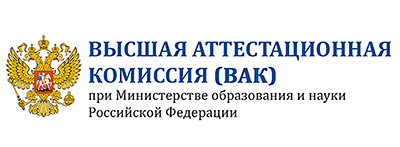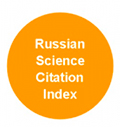The anti-abortion agenda in the conservative discourse in Russia: ideological campaigns, legal initiatives and regional practices
Abstract
The article examines the processes of conservative mobilization in Russia in 2000-2010s as a deployment of ideological propaganda campaigns using the conservative rhetoric of the traditional family, traditional values, and traditional gender roles in order to solve “demographic problems”, above all the increase of fertility. The main focus of the article is the discourse on abortion. State anti-abortion propaganda is viewed as a “litmus test” of the ongoing processes of retraditionalization of state ideology and of instruments for regulating reproduction and sexuality. In analyzing the legislative and regional initiatives of the period under study, the authors describe the main public actors of the regional and federal levels, as well as the rhetoric they use. The article shows that since the 2000s one of the leading actors working for the adoption of anti-abortion legislation has been the Russian Orthodox Church. At the same time, there have been public actors at the federal level who have held back the adoption of anti-abortion legislation and have been consistently critical of anti-abortion rhetoric. At the same time, on the regional level, pro-conservative mobilization actors have effectively used state support, without encountering noticeable criticism. Substantively anti-abortion rhetoric is inscribed in the discourse on demographic problems and population decline as a threat to national security. It is aimed at regulating the behavior of citizens in the field of intimacy, their bodies, and morality, thus representing a variant of biopolitics in the terms of Michel Foucault. In this sense, the ultimate goal of conservative mobilization is to create docile citizens indoctrinated with the ideology of a traditional family lifestyle and large families.
Downloads
References
Antonov A. (Red.) (2005). Sotsiologiya sem’i: Uchebnik. 2-e izd., pererab. i dop. Moscow: Infra-M. (In Russ.).
Bek U. (2000). Obshchestvo riska. Na puti k drugomu modernu. MOSCOW: Progress-Traditsiya. (In Russ.).
Chernova Zh. (2012a). New Pronatalism? Family Policy in Post-Soviet Russia. REGION: Regional Studies of Russia, Eastern Europe, and Central Asia, 1(1), 75–92. (In Russ.).
Chernova Zh. (2012b). Balans sem’i i raboty: politika i individual’nyye strategii materey. Zhurnal issledovaniy sotsial’noy politiki, 10(3), 295-308.
Connell R. (1987). Gender and power: society, the person and sexual politics. Stanford: Stanford University Press.
Flick U. (2006). An Introduction to Qualitative Research. London: Sage Publications.
Foucault M. (2003). The Birth of Biopolitics. In The Essential Foucault: Selections from Essential Works of Foucault 1954–1984 (pp. 202–207). London: The New Press.
Giddens A. (1991). Modernity and Self-Identity: Self and Society in Late Modern Age. Cambridge: Polity Press.
Giddens A. (2004). Transformatsiya intimnosti. Seksual’nost’, lyubov’ i erotizm v sovremennykh obshchestvakh. Saint-Petersburg: Piter. (In Russ.).
Graff A., Ratna K., Walters S. (2019). Introduction: Gender and the Rise of the Global Right. Signs: Journal of Women in Culture and Society, 44(3), 541–60.
Hasmath R., Hildebrandt T., Hsu J. (2019). Conceptualizing government-organized non-governmental organizations. Journal of civil society, 15(3), 267-284.
Illouz E. (2008). Saving the Modern Soul: Therapy, Emotions, and the Culture of Self-Help. Oakland: University of California Press.
Lawler St. (2000). Mothering the Self: Mothers, Daughters, Subjects. London: Routledge.
Magun A. (2010). Perestroyka kak konservativnaya revolyutsiya? Neprikosnovennyy zapas, 6(74). (In Russ.). URL: https://magazines.gorky.media/nz/2010/6/perestrojka-kak-konservativnaya-revolyucziya.html
Murav'yova M. (2014). Traditsionnyye tsennosti i sovremennyye sem'i: pravovyye podkhody k traditsii i modernu v sovremennoy Rossii. The Journal of Social Policy Studies, 12(4), 625-638. (In Russ.).
Owen C., Bindman E. (2017). Civic Participation in a Hybrid Regime: Limited Pluralism in Policymaking and Delivery in Contemporary Russia. Government and Opposition, 54(1), 98-120.
Paxon H. (2004). Making modern mothers: ethic and family planning in urban Greece. Berkley, Los Angeles: University of California Press.
Pecherskaya N. (2012). Mifologiya roditel’stva: analiz diskursivnogo proizvodstva ideal’noĭ sem’i. Zhurnal issledovaniĭ sotsial’noĭ politiki, 10(3), 323–342. (In Russ.).
Rivkin-Fish M. (2010). Pronatalism, Gender Politics, and the Renewal of Family Support in Russia: Towards a Feminist Anthropology of ‘Maternity Capital. Slavic Review, 69(3), 701-724.
Rivkin-Fish M. (2013). Conceptualizing Feminist Strategies for Russian Reproductive Politics: Abortion, Surrogate Motherhood, and Family Support After Socialism. SIGNS, 38(3), 569-593.
Roche S. (2016). A Sound Family for a Healthy Nation: Motherhood in Tajik National Politics and Society. Nationalities Papers, 44(2), 207-224. doi:10.1080/00905992.2015.1087486
Rotkirkh A., Temkina A. (2007). Sovetskiye gendernyye kontrakty i ikh transformatsiya v sovremennoĭ Rossii. In Zdravomyslova E., Temkina A. (Red.) Rossiĭskiĭ gendernyĭ poryadok: sotsiologicheskiĭ podkhod (pp. 169–200). Saint-Petersburg: Izd-vo Evropeĭskogo universiteta v Sankt-Peterburge. (In Russ.).
Sakevich V., Denisov B., Rivkin-Fish M. (2016). Neposledovatel’naya politika v oblasti kontrolya rozhdayemosti i dinamika urovnya abortov v Rossii. Zhurnal issledovaniy sotsial’noy politiki, 14(4), 461–478. (In Russ.).
Shpakovskaya L.L. (2013). Diskursivnyye praktiki roditel’stva: politicheskiye vyzovy i aktual’nyye problemy. Vestnik Tomskogo gosudarstvennogo universiteta. Filosofiya. Sotsiologiya. Politologiya, 1, 236-249. (In Russ.).
Shpakovskaya L.L. (2012). Politika institutsializatsii i praktiki privatizatsii semeynoy zhizni: partnerstvo i brak v Rossii. Zhurnal issledovaniy sotsial’noy politiki, 10(3), 309-323. (In Russ.).
Timoshenko A. (2019). Pis’mo v redaktsiyu. Sotsiologicheskiye issledovaniya, 4, 173-174. (In Russ.).
Van de Kaa D.J. (1987). Europe’s Second Demographic Transition. Population Bulletin, 42, 1–59.
Vishnevskiy A. (Red.) (2006). Demograficheskaya modernizatsiya Rossii, 1900–2000. Moscow: Novoye izdatel’stvo. (In Russ.).
Vishnevskiy A. (2012a). Demograficheskiy proryv ili dvizheniye po krugu? Chast’ pervaya. Demoskop Weekly, 533-534. (In Russ.).URL: http://demoscope.ru/weekly/2012/0533/tema01.php
Vishnevskiy A. (2012b). Demograficheskiy proryv ili dvizheniye po krugu? Chast’ vtoraya. Demoskop Weekly, 535-536. (In Russ.).URL: http://demoscope.ru/weekly/2012/0535/tema01.php
Vishnevskiy A.G., Denisov B.P., Sakevich V.I. (2017). Kontratseptivnaya revolyutsiya v Rossii. Demograficheskoye obozreniye, 1, 6-34. (In Russ.).
Vishnevsky A., Sakevich V., Denisov B. (2018). The contraceptive revolution in Russia. Demographicheskoe obozrenie, Vol. English selections 2017, 86-108.
Vishnevskiy A., Zakharov S. (2019). Zaklyucheniye. V Zakharov S. (Ed.), Naseleniye Rossii 2017: dvadtsat’ pyatyy ezhegodnyy demograficheskiy doklad (pp. 459-477). Moscow : Izdatel’skiy dom NIU VShE. (In Russ.).
Yarskaya-Smirnova E. (2010). «Da-da, ya vas pomnyu, vy zhe u nas neblagopoluchnaya sem’ya!» Diskursivnoye oformleniye sovremennoĭ rossiĭskoĭ politiki. Zhenshchina v rossiĭskom obshchestve, 2, 14–25. (In Russ.).
Yuval-Davis N. (1997). Gender and Nation. London: Thousand Oaks: Sage.
Zakharov S. (2012). Kakoĭ budet rozhdayemost’ v Rossii? Demoskop Weekly, 495–496. (In Russ.). URL: http:// demoscope.ru/weekly/2012/0495/tema01.php
Zdravomyslova E., Temkina A. (2003). Sovetskiĭ etakraticheskiĭ gendernyĭ poryadok, V: Pushkareva N.M., (Ed.), Sotsial’naya istoriya. Sotsial’naya istoriya ezhegodnik. Zhenskaya i gendernaya istoriya (pp. 436–463). Moscow: ROSSPEN. (In Russ.).
Zhukov V. (2018). Zakonodatel’stvo ob abortakh: mirovyye trendy i natsional’nyye interesy. Sotciologicheskie issledovamia, 3, 113-123. (In Russ.).
























